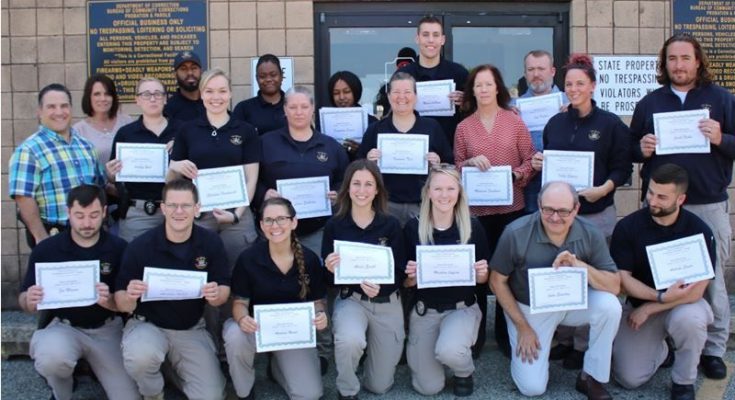Twenty-Four Delaware Probation and Parole officers graduated from the Effective Practices in Community Supervision (EPICS) training on May 2, 2019. The training occurred over the course of six months and included attendance at monthly “booster” sessions with the submission of taped interviews with offenders prior to each session. Participants were also required to practice their skills through role plays and with offenders assigned to their caseloads throughout this training.
“I continue to be highly impressed by the dedication to public safety on behalf of our probation and parole officers. Their unique role as law enforcement officers require them to not only hold probationers accountable but also coach them toward pro-social living,” said Bureau Chief Jim Elder. “This group’s completion of EPICS training and our continued expansion of evidence-based practices mark yet another milestone on our journey toward 21st Century Community Corrections”
The EPICS model is designed to use a combination of monitoring, referrals, and face-to-face interactions to provide the offenders with a sufficient “dosage” of treatment interventions, and make the best possible use of time to develop a collaborative working relationship. The EPICS model helps translate the risk, needs and responsivity principles into practice. Community supervision officers are taught to increase the dosage to higher risk offenders, stay focused on criminogenic needs – especially the thought-behavior link – and to use a social learning, cognitive behavioral approach to their interactions. The EPICS model is not intended to replace other programming and services but rather is an attempt to more fully utilize staff as agents of change.
The training consists of three days of skill-based training with up to 30 community supervision officers or case managers and supervisors and is followed by a 6-8 month coaching period.

